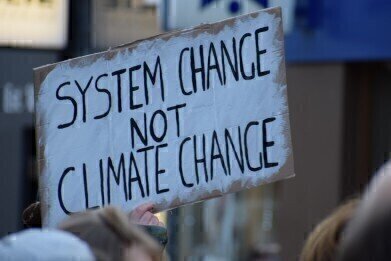Fuel for thought
What Are the United States’s New Rules for Fracking?
May 02 2015
Fracking remains a polarising topic, dividing opinion and sparking fierce emotions around the world. In the UK, fracking is often discussed in relation to fierce protests from environmentalists – even beer enthusiasts recently joined the ‘against’ camp after members of the Campaign for Real Ale (Camra) argued that fracking poses a risk to the quality of ale in the UK. In the US, fracking has been met with fierce opposition in key states such as Texas and Pennsylvania.
Fracking – or hydraulic fracturing – is a process used for releasing gas or oil from shale rock. Holes are drilled deep into the earth and then a pressurised mixture of water, sand and chemicals is forced into the wells. The pressure creates fissures in the rock, which allows gas and oil to be released and brought to the surface.
The process is controversial for a number of reasons. Firstly, it requires a large amount of water to be brought to the area, or taken from local sources. Secondly, some are concerned about harmful chemicals being released into the earth and making their way into the water table. And finally, fracking has been linked to small tremors, although experts say these are minor and unlikely to cause damage.
You can read more about this in our article: Does Fracking Cause Earthquakes?
In the USA, the process has been widely used since the mid-2000s, and is the leading cause of the energy boom that is unlike anything the country has seen since the 1980s. Until recently, individual states were responsible for setting their own fracking regulations, but new legislation brought into effect by President Obama aims to regulate the process. All wells operating on federal and Indian land must now abide by new rules, with an aim to increase transparency and safety.
The new rules will effect a small portion of the fracking operations in the USA, as only 11% of natural gas production and 5% of oil productions occurs on federal lands. Sally Jewell, the interior secretary to the United States said: “Current federal well-drilling regulations are more than 30 years old and they simply have not kept pace with the technical complexities of today’s hydraulic fracturing operations.”
Under the new rules, oil and gas drillers will have to disclose the chemicals used in their operations, and face increased accountability for their wastewater disposal. Within 30 days of completing fracking operations, the companies responsible will be required to disclose details about the chemicals used to the Bureau of Land Management through a dedicated website called FracFocus. Companies will also face tougher regulations for ensuring the wells are properly maintained to prevent groundwater contamination.
At present, the majority of fracking takes place in Texas, North Dakota, Colorado, and Pennsylvania, and each of these states has their own rules governing oil and gas production. Environmentalists hope that the new laws for federal land will be adopted by individual states and used as a template to regulate the 1-million fracking wells currently in operation across the US.
Read more about the regulation in our article: Why has New York State Banned Fracking?
Digital Edition
PIN 25.6 Buyers' Guide
January 2025
Buyers' Guide Directory - Product Listings by Category - Suppliers Listings (A-Z) Articles Analytical Instrumentation - ASTM D7042: The Quantum Leap in Viscosity Testing Technology -...
View all digital editions
Events
Jan 20 2025 San Diego, CA, USA
Jan 22 2025 Tokyo, Japan
Jan 25 2025 San Diego, CA, USA
SPE Hydraulic Fracturing Technology Conference and Exhibition
Feb 04 2025 The Woodlands, TX, USA
Feb 05 2025 Guangzhou, China



















